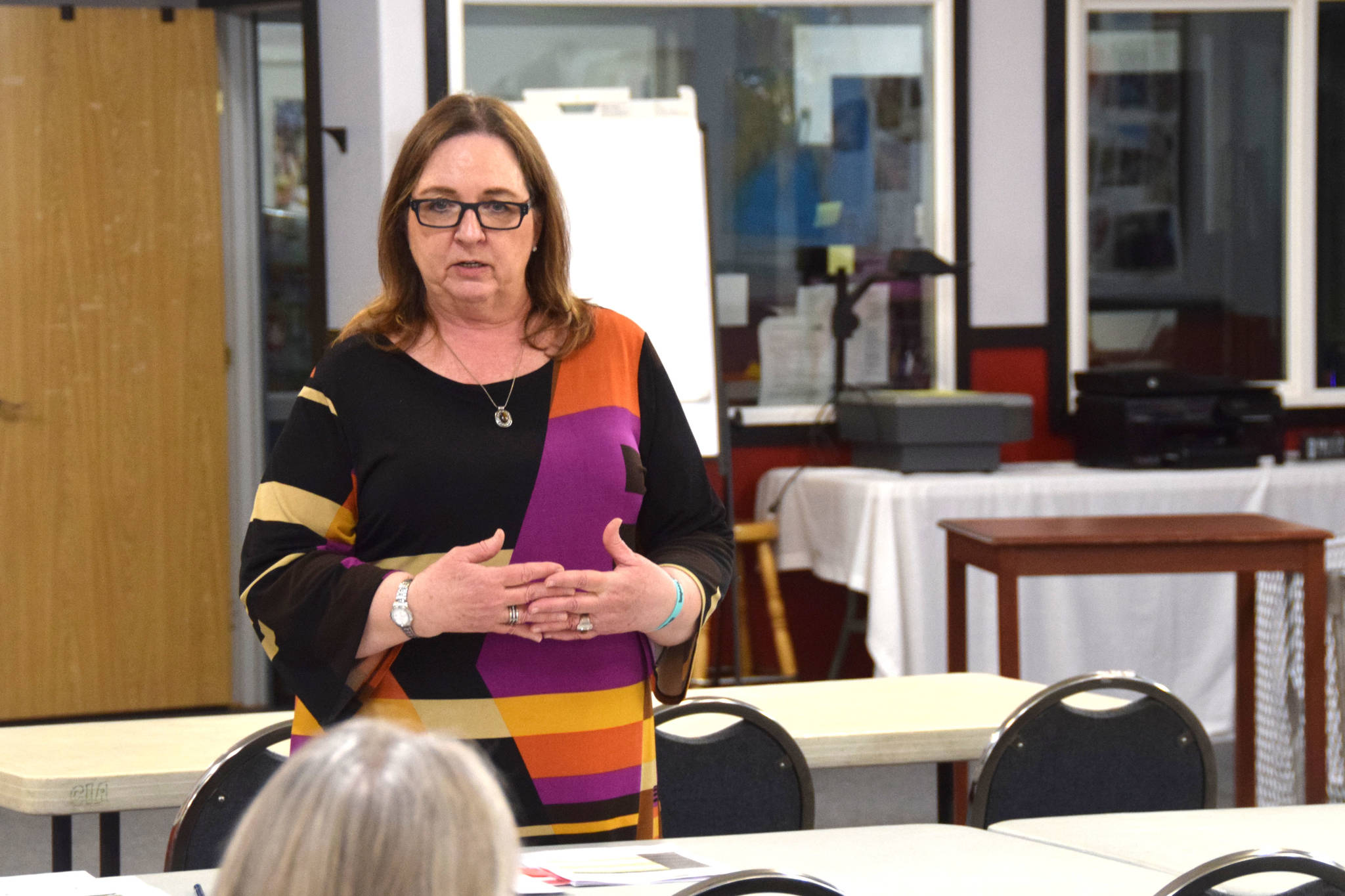Organizations working to end homelessness on the Kenai Peninsula are at risk of losing an essential source of funding as a result of Gov. Mike Dunleavy’s proposed $440 million cuts to the state budget.
Among Dunleavy’s 182 line-item vetoes to the budget is a reduction to the Homelessness Assistance Program, or HAP grant, from $7.9 million to $950,000. The HAP grant is used by organizations across the state to provide emergency and transitional housing, as well as services to prevent homelessness and to rapidly re-house those who have been displaced. According to the Alaska Housing Finance Corporation’s website, HAP grant funds are awarded competitively to agencies based on need. With a reduction in the grant’s funding by nearly 90%, agencies may soon be competing for scraps.
On the Kenai Peninsula, three agencies have traditionally received funding through the HAP grant: The LeeShore Center in Kenai, Love, INC in Soldotna and Haven House in Homer. Love, INC is the largest recipient of the grant and last year received $324,000, which is about 60% of their annual operating budget. Leslie Rohr, executive director of Love, INC, said that with such steep reductions in the grant’s total amount she doesn’t anticipate receiving any funds this year.
Without the HAP grant, Rohr said that many of the organization’s services will be eliminated. Specifically, the HAP grant pays for all of Love, INC’s homelessness prevention, housing placement, emergency lodging, supportive services, a portion of the lease for their building and the salaries of four employees. This means that Rohr and her team will no longer be able to help their clients pay utility bills, acquire housing vouchers, pay for overnight stays in hotel rooms or provide any other form of financial assistance. Rohr said that Love, INC’s clearinghouse services — which include providing food, clothing and other essential supplies to those in need — are funded separately
In the last year alone, 340 households with a total of 733 individuals received Love, INC services that are directly funded through the HAP grant. Because of the way the grant is distributed, Love, INC has been operating without these funds since June 30.
Rohr said that she is still accepting applications from anyone who walks in asking for help, but she has to tell those people that the funds they need will likely not be there. Rohr has been looking into potential substitutes to the HAP grant from the federal government and private foundations, but said that no individual grant comes close to the amount of funding received through HAP.
Love, INC also partners with 48 churches around the peninsula, and Rohr anticipates having to rely on them more heavily for financial support. Rohr said that she understands the need to balance the state’s budget, but worries about both the immediate and long-term impacts these reductions will have on vulnerable Alaskans.
“This is more than pruning the branches,” Rohr said. “It’s taking the roots out.”
Meanwhile, the LeeShore Center — which provides assistance and emergency shelter to victims of domestic violence and sexual assault — is at risk of losing around $56,000 in annual funding. Executive Director Cheri Smith said that the HAP grant pays for the security system and utility costs in their emergency shelter as well as the salary of a Direct Service Advocate. Smith said that this grant is the foundation of their annual budget, and while the amount may not be as much as other agencies receive, the money goes a long way. Like Rohr at Love, INC, Smith hasn’t found an alternative source of funding to replace the HAP grant and anticipates an immediate impact to the LeeShore Center’s ability to provide emergency shelter and housing assistance.
“These cuts hit the people that need the most help,” Smith said.
Matt Shuckerow, spokesperson for Dunleavy, said that while programs like the HAP grant may provide important services to people in the state, the state’s fiscal situation calls for significant reduction in government spending.
“In the years under a revenue picture that allowed it, we’ve been able to provide certain funding,” Shuckerow said. “However, based on the current fiscal reality, we have to make tough decisions.”
Aside from the limited housing services offered by Love, INC, LeeShore Center and other agencies, the peninsula currently has no permanent emergency shelter. A workgroup comprised of Rohr, Smith and representatives from other local nonprofits have been working over the past year to acquire the location for one, but so far their efforts have yielded few results.
With the elimination of HAP grant funding looming over the agencies that provide housing assistance, Rohr said that it is more important than ever to get this proposed shelter off the ground and plans to start organizing more meetings within the next few months.
In the meantime, agencies like Love, INC and the LeeShore Center will have to look to the local community for support in order to continue providing the services that they have traditionally offered.

